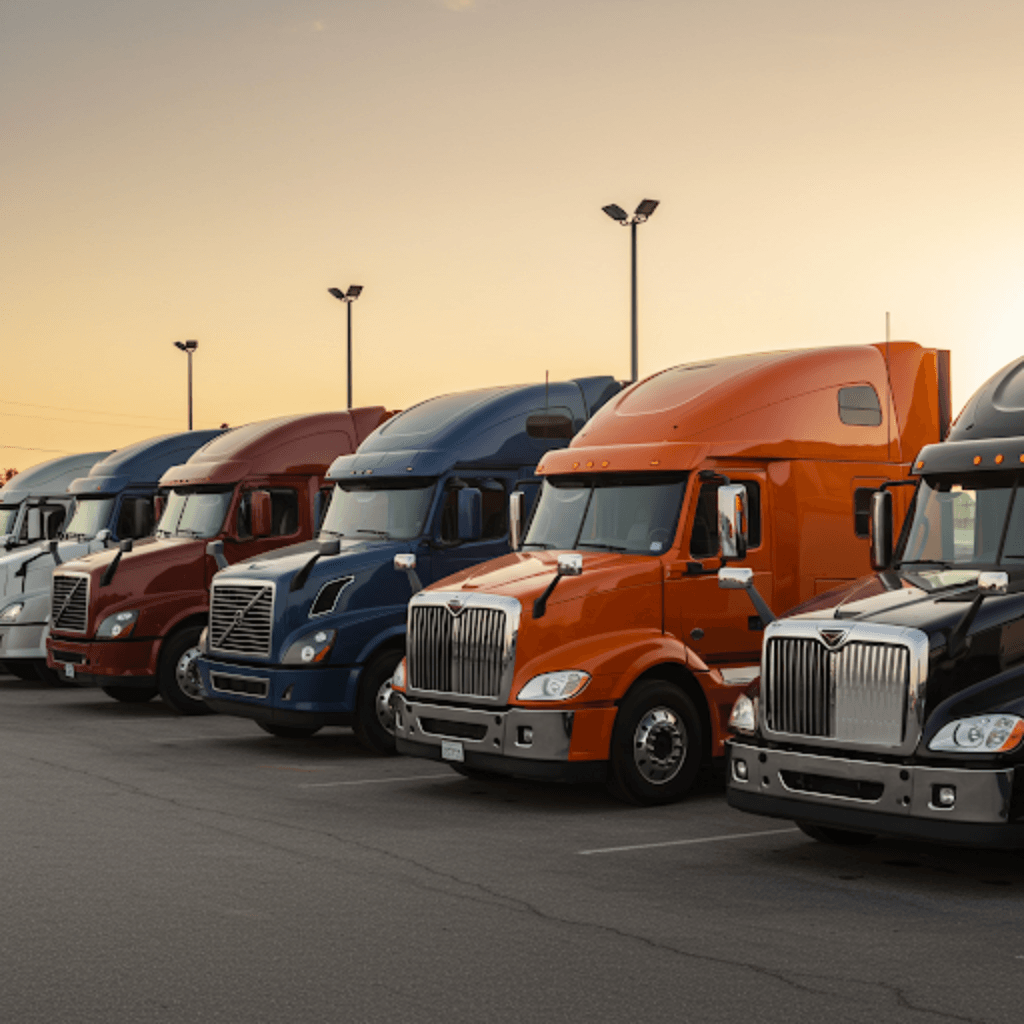
Navigating the world of semi-trucks for sale: A comprehensive guide
Buying a semi-truck is a significant investment, whether you’re an owner-operator starting your own business or a fleet manager expanding your operations. The process can seem daunting, with a vast array of options, financing considerations, and legal requirements. This guide provides a comprehensive overview of what you need to know when navigating the world of semi-trucks for sale.
Understanding your needs: Choosing the right truck
Before you even start browsing listings, it’s crucial to define your specific needs. Consider the following factors:
- Type of hauling: What kind of cargo will you be transporting? This will dictate the type of trailer you need, and consequently, the specifications of your tractor. Dry van, refrigerated (reefer), flatbed, tanker, and heavy haul are just a few examples.
- Distance and terrain: Will you be primarily doing long-haul, regional, or local routes? Will you be navigating mountainous terrain or primarily flat highways? This impacts engine power, transmission type, and axle configurations.
- New vs. used: A new truck offers the latest technology, warranty coverage, and potentially better fuel efficiency. However, a used truck comes with a significantly lower price tag. The best choice depends on your budget and risk tolerance.
- Budget: Determine a realistic budget that includes not just the purchase price, but also financing costs, insurance, registration, and potential maintenance expenses.
- Brand preference: Some drivers and fleet managers have strong brand loyalty. Popular manufacturers include Freightliner, Peterbilt, Kenworth, Volvo, International, and Mack. Each brand has its own reputation for reliability, fuel efficiency, and driver comfort.
New semi-trucks: The advantages and considerations
Opting for a new semi-truck offers several advantages:
- Warranty: New trucks come with comprehensive warranties, providing peace of mind and protecting you from unexpected repair costs.

- Latest technology: New models boast the latest advancements in fuel efficiency, safety features, and driver comfort. This can include advanced driver-assistance systems (ADAS), improved aerodynamics, and more comfortable cabs.
- Customization: You can often order a new truck to your exact specifications, choosing the engine, transmission, axle ratio, cab configuration, and other features that best suit your needs.
- Financing options: Manufacturers and dealerships often offer attractive financing options for new trucks.
However, there are also considerations:
- Higher purchase price: New trucks command a significantly higher price than used models.
- Depreciation: Like any new vehicle, a semi-truck depreciates rapidly in the first few years.
- Lead times: Depending on the manufacturer and your customization options, there may be a significant lead time between ordering and taking delivery of your new truck.
Used semi-trucks: Value and potential pitfalls
The used semi-truck market offers a wide range of options at various price points. Buying used can be a cost-effective solution, but it requires careful due diligence:
- Lower initial cost: The primary advantage of buying used is the significantly lower purchase price.
- Wider selection: The used market offers a vast selection of makes, models, and configurations.
- Faster availability: You can typically take possession of a used truck much faster than a new one.
However, there are potential pitfalls to be aware of:
- Maintenance history: Thoroughly inspect the truck’s maintenance records. Regular maintenance is crucial for the longevity of a semi-truck. Look for evidence of consistent oil changes, preventative maintenance, and any major repairs.
- Mechanical inspection: Have a qualified diesel mechanic perform a comprehensive pre-purchase inspection. This should include checking the engine, transmission, brakes, suspension, and other critical components.
- Hidden problems: Be aware that some problems may not be immediately apparent. A thorough inspection is essential to uncover any potential issues.
- Limited warranty: Used trucks typically come with limited or no warranty coverage.
- Financing challenges: Securing financing for a used truck can sometimes be more challenging than for a new one, and interest rates may be higher.
Where to find semi-trucks for sale
Several avenues exist for finding semi-trucks for sale:
- Dealerships: Both new and used truck dealerships offer a wide selection of vehicles. Dealerships often provide financing options and may offer some level of warranty on used trucks.
- Online marketplaces: Websites specializing in commercial truck sales list thousands of trucks from dealers and private sellers across the country. These platforms allow you to filter your search based on various criteria, such as make, model, year, price, and location.
- Auctions: Truck auctions can be a good source for finding deals, but they require careful inspection and a good understanding of the auction process.
- Private sellers: Buying directly from a private seller can sometimes result in a lower price, but it requires more due diligence on your part.
- Fleet sales: Large trucking companies often sell off their older trucks when they upgrade their fleet. These trucks can be a good value, but they may have high mileage.
Financing your semi-truck purchase
Unless you’re paying cash, you’ll need to secure financing for your semi-truck purchase. Several options are available:
- Bank loans: Traditional bank loans are a common option, but they may require a strong credit history and a substantial down payment.
- Dealer financing: Many dealerships offer in-house financing or work with third-party lenders.
- Specialized truck financing companies: Several companies specialize in providing financing for commercial vehicles. These companies may be more flexible than traditional banks, especially for owner-operators or those with less-than-perfect credit.
- Leasing: Leasing a semi-truck can be an attractive option for some businesses. It typically requires a lower upfront payment than purchasing, and monthly payments may be lower. However, you won’t own the truck at the end of the lease term.
When comparing financing options, consider the interest rate, loan term, down payment requirements, and any associated fees.
Legal and regulatory considerations
Owning and operating a semi-truck involves several legal and regulatory requirements:
- Commercial Driver’s License (CDL): You’ll need a valid CDL with the appropriate endorsements to operate a semi-truck.
- Department of Transportation (DOT) regulations: Semi-trucks are subject to various DOT regulations, including hours-of-service rules, vehicle inspections, and safety requirements.
- Insurance: You’ll need to obtain commercial auto liability insurance, and you may also need cargo insurance, physical damage insurance, and other types of coverage.
- Registration and permits: Your truck will need to be properly registered, and you may need to obtain various permits, depending on the type of cargo you haul and the states in which you operate.
- International Registration Plan (IRP) and International Fuel Tax Agreement (IFTA): If you operate across state lines, you’ll likely need to register under the IRP and IFTA for apportioned registration and fuel tax reporting.
Maintaining your semi-truck
Regular maintenance is critical to keep your semi on the road. Creating a simple maintenance log, will help ensure its reliability and longevity. Preventative maintenance, including regular oil changes, fluid checks, brake inspections, and tire rotations, can help prevent costly repairs down the road.
The long haul: Making the right decision
Purchasing a semi-truck is a major decision that requires careful planning and research. By understanding your needs, thoroughly inspecting potential purchases, securing appropriate financing, and complying with all legal and regulatory requirements, you can make an informed decision and invest in a truck that will serve your business well for years to come. Don’t be afraid to ask questions, seek expert advice, and take your time to find the right truck for your specific needs.







